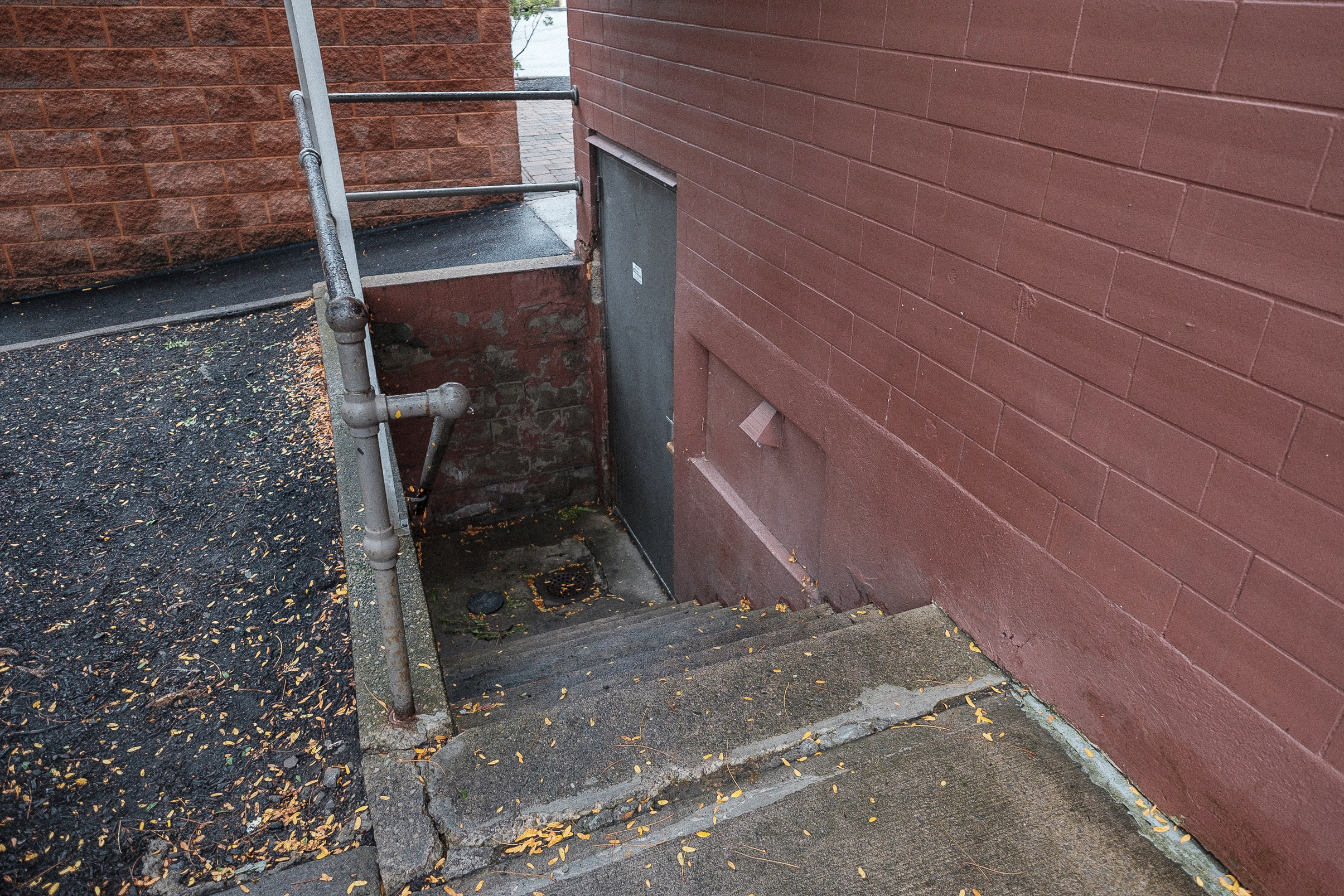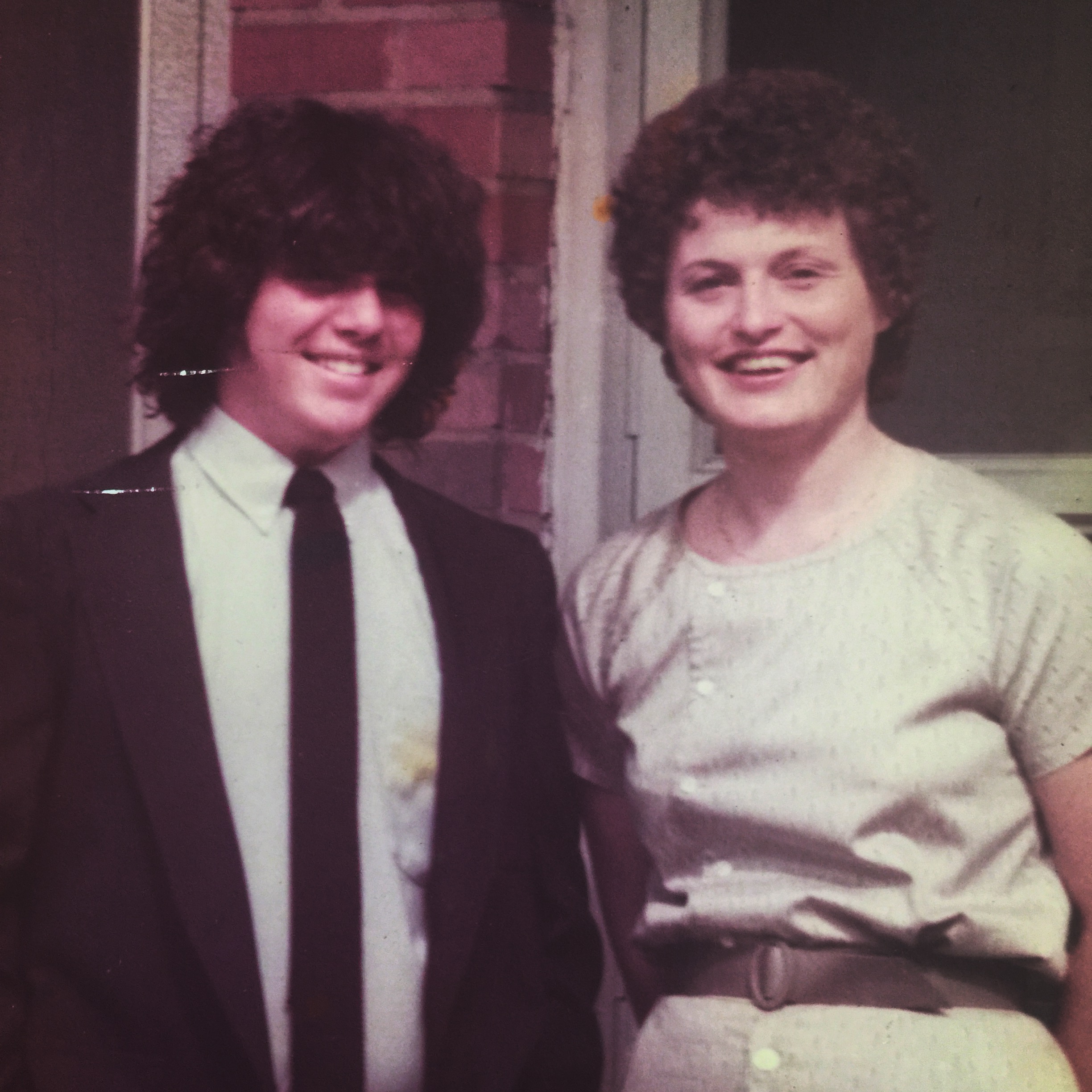From roughly 13-15 my friends and I hung around anywhere we could, in parking lots, diners, parks, driveways, basements, family rooms, derelict train cars, the high school bleachers (but never on game nights). A favored spot, at least to get high, was simply behind the fence at a gas station near our school. Like most such places we claimed — a certain stairwell comes to mind, or a narrow strip of grass next to a bank parking lot — we were oblivious to the surrounding area, babies in an elaborate, public round of peek-a-boo: if we didn’t see the adults, they didn’t see us. It was a fragile scene in those years, trouble at home for some of us, trouble at school, and it seemed like the whole world was trying to keep us at home or school. Although I did my best to steer clear of serious trouble, I found some, mostly in drug use and the eventual self-determined cessation of my public education in the course of my sophomore year. It was a difficult time.

But there were two things in my case that made a difference: I was honest about my truancy, and I never missed my curfew. Why would I lie about skipping school if both the school and my mother knew I had done it? I saw no point, and the penalties for skipping were not, in my estimation, prohibitive. As for the second thing, why would I stay out later than my mother wanted when I could get high and listen to music and read at home? I was perfectly happy, most of the time, to abandon my crew and head home to food and shelter and the safety and comfort of my bedroom. As it happened, mine was a home almost entirely free of conflict, if not worry. There was plenty of worry but my mother and I seemed to agree about it, share the struggle.

And so I came to spend an increasing amount of time alone with either headphones and my stereo or my Walkman.1 This would have been 1984-5, as I recall, and my listening was all over the place: Bob Dylan’s first three records were favorites; metal as it was understood at the time by Kerrang magazine; Jimi Hendrix, especially Axis: Bold As Love; Stevie Ray Vaughan’s Couldn’t Stand the Weather;2 British Invasion, especially the Who and the Kinks. Lots of music. Always music. There was also radio, 96.5 WCMF,3 92 WMJQ,4 and 104 WDKX.5 Radio was social, mostly for the car or seasonal hanging out at people’s homes, speakers in the window or dragged outside. This was the stuff I shared with others. My private music, on the other hand, was Gil Evans-era Miles Davis, especially Sketches of Spain, a reasonable collection of Motown and Chess tapes, and Peter Gabriel, especially Security which for reasons described elsewhere both confirmed and assuaged my most intense fears.
I’m not sure why I kept these musics to myself. I suspect it stemmed from my response to my parents’ divorce, which was to hold things close for fear that they might be taken from me, or that this kind of compartmentalization kept me from being totally abandoned, kept something for myself, gave me a barely-conscious feeling of control. For some kids, divorce leads outward and they seek relief in likeminded and collusive souls whose presence secures them from further pain and separation. Experience is validated by consensus. Some, however, like me, withdraw even from their peers and seek refuge in more private selection and recursion. It’s hard on the kids either way and the difference is more temperamental than qualitative. Without a group’s affirmation, the first kind of kid sinks. Without sufficient fortification, the second kind of kid can’t bridge the gap between themself and the world around them.
Peter Gabriel’s music eventually became my sufficient fortification, the music that first bridged this gap for me.
-
Unrelated: the first tape I ever wore out was a TDK C90 with Judas Priest’s Unleashed in the East on one side and Iron Maiden’s Number of the Beast on the other. At some point while listening to Maiden, Priest’s “Sinner” became audible, backwards. ↩
-
Subsequent editions of this record have replaced the original sequence on most streaming platforms. I link here to the original sequence because it’s the one I’m referring to. ↩
-
“Rochester’s only home of rock and roll!” ↩
-
Somewhat awkwardly, never quite able to rise above the status of Rochester’s other home of rock and roll. But there was plenty of rock and roll to go around back then. ↩
-
A black-owned and operated station since the 70s whose call letters stood and stand for Frederick Douglas, Dr. Martin Luther King, Jr., and Malcolm X. ↩